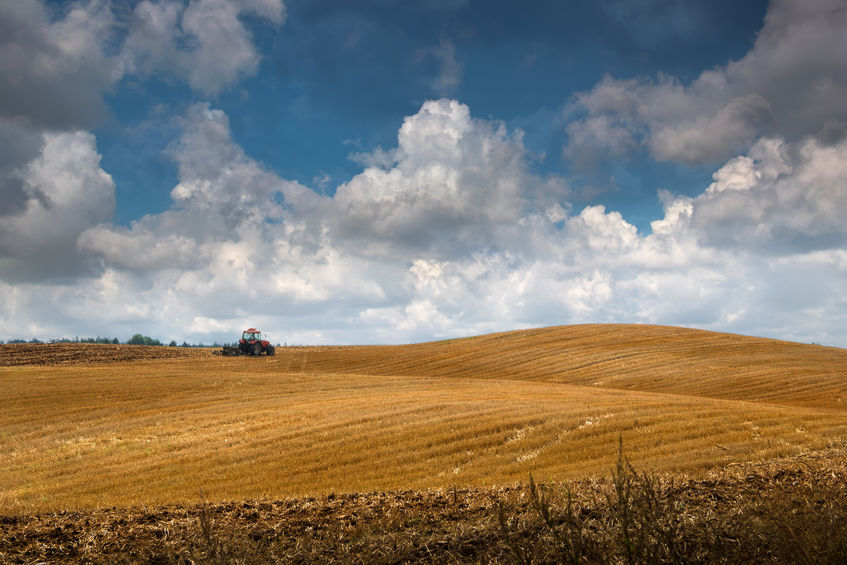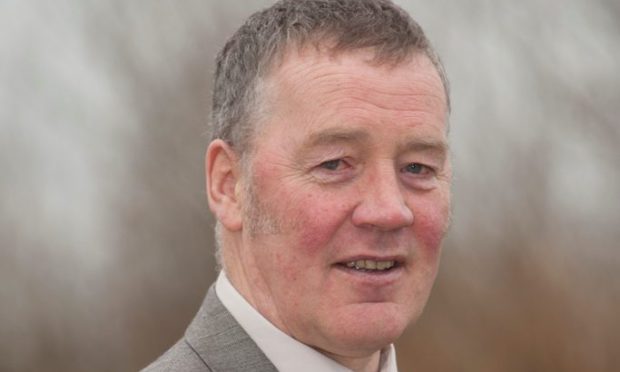
Scottish farming union NFU Scotland has urged policy makers to learn from the mistakes of the current Common Agricultural Policy (CAP) before planning for the next.
Speaking at an event in Rome, to discuss future policy at the European Parliament, NFUS Vice President Andrew McCornick examined the future of the Common Agricultural Policy.
Despite the UK’s expected exit from the EU, the Union urged policymakers to stop 'over symplifying' the whole financial process.
NFUS Vice President Andrew McCornick said: "Across Europe, farmers produce food; are the cornerstone of growing food and drink sectors; they support wider economic activity in rural areas; they are the custodians of the countryside.

"The public value all of these things but often don’t understand or appreciate the role of farmers in delivering them.
"Ideally the marketplace would value all of these things but it doesn’t and without the support of the CAP most European farms struggle to be viable.
"While the UK’s exit from the EU will see our farmers and crofters eventually removed from the CAP support system; I urge Europe to learn the lessons from the implementation of the current CAP package as it considers the policy’s future role," Mr McCornick said.
One-size environmental policy 'inappropriate'
Mr McCornick said the time allotted to member states to implement fundamental reform was "too short", causing "widespread delays and uncertainty" across the EU.
"A one-size fits all environmental policy for the whole of the EU is inappropriate and policymakers and auditors must work more closely together to ensure regulations can be implemented at grass roots level," Mr McCornick said.
"Finally, CAP needs to refocus on supporting production," he continued, "paying people to do little or nothing by way of agricultural activity is not acceptable.
"It is the production of food that will deliver food security to Europe and it is the production of food that generates jobs and economic activity."

Mr McCornick explained that food production and a sensible environmental policy can be delivered together.
"In the future, we need an agricultural policy that delivers profitable, sustainable farming across the EU.
"This cannot be done without tackling the problems in the supply chain and Scotland is not alone in facing falling farm incomes at a time when other parts of the food chain are going from strength to strength.
"We need proper collaboration in the supply chain where everyone can make a margin that allows them to invest and be sustainable for the future," Mr McCornick said.
Recognising the 'extra demands'
The Vice-President said future CAP needs to recognise the "extra demands" it places on EU farmers and "compensate them" for these costs.
"It also needs to value what farmers deliver for the local economy and environment as well as society as a whole," Mr McCornick said.
"The income forgone model for valuing environmental delivery is busted.
"We need to properly incentivise farmers for going above and beyond and delivering goods that both have a financial cost to the individual and a benefit to society.
"In a roundabout way, Brexit provides some vital pointers to CAP policy discussions," he said.
"It is clear to us that whatever happens and however Brexit plays out in the years ahead, Europe will continue to be important to the UK and its farmers but policymakers should have an appreciation of why some UK farmers voted to leave.
"Rules and bureaucracy, often seen as costly or irrelevant, can make even the simplest farm activity difficult.
"But more concerning for many is the constant fear of breaching the rules and the harsh penalties that a breach will bring.
"Whether by genuine mistake, by confusion or even a blatant breach; they are all treated the same and penalties often bear no resemblance to the error made.
"Farmers also see the inactive being supported while those who are producing more and looking to grow their business have lost out in recent reforms.
"Add in a dysfunctional supply chain and non-existent profitability and policymakers can see why the promise of something better from those who supported Brexit will have been attractive to some in the farming community compared to sticking with the CAP we know," Mr McCornick concluded.
